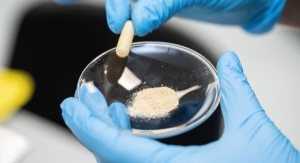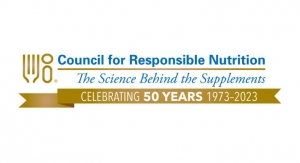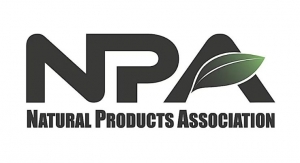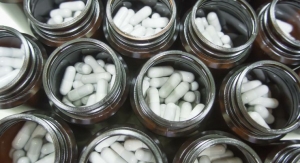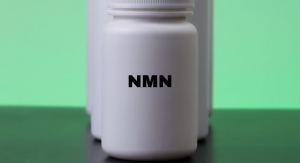Kelly Waters, Marketing Manager, InstantGMP, Inc.11.21.16
For many companies within the dietary supplements industry, complying with the Dietary Supplement Health and Education Act of 1994 (DSHEA) can be complicated and intimidating. The Food and Drug Administration (FDA) is trying to improve the overall rate of compliance to quality measures with the implementation of New Dietary Ingredient (NDI) regulation.
To briefly summarize the draft guidance, the requirement to file an NDI hinges on whether a particular supplement was on the market before Oct. 15, 1994, specifically marketed as a dietary supplement in the U.S., and whether or not the key ingredient can be found in conventional food or drinks.
Background
From a 2012 report, the FDA estimated that the number of supplements on the market is about 55,600 with 5,500+ new supplements introduced to the market annually. This is a stark contrast to the estimate of 4,000 in 1994 when DSHEA was enacted.
With so many new products on or coming onto the market, the FDA has struggled to keep up with compliance enforcement. In an effort to make dietary supplements safer and to ease their burden, the agency has exercised its authority to create clearer regulations in the form of pre-market approvals.
Filing documentation for new drugs or investigative trials in pharma is standard, but for the dietary supplements industry, it will be a challenge—especially because the criteria, definitions, and requirements are difficult to interpret.
2011 Draft Guidance Controversy
DSHEA is the culmination of several decades of attempted regulations and in turn, was not seen as the last time the FDA would attempt to introduce more policies. In 2011, the FDA issued a draft guidance in an effort to introduce the concept of NDI notifications, among other topics, and was met with concern by stakeholders within the industry and outsiders. The author of DSHEA, Sen. Orrin Hatch (R-Utah) viewed the 2011 version as inconsistent with the original intent of the law.
Within the supplements industry, the major independent organizations banded together to overhaul the proposed regulations. The American Herbal Products Association (AHPA), the Consumer Healthcare Products Association (CHPA), the Council for Responsible Nutrition (CRN), the Natural Products Association (NPA), and the United Natural Products Alliance (UNPA) banded together and urged the FDA to reconsider their original points regarding:
Defining New Dietary Ingredients
A dietary ingredient is defined in the Food, Drug & Cosmetic Act (FD&C Act) 21 U.S.C. 201(ff)(1) as fitting into one of the following:
A. Vitamin
B. Mineral
C. Herb or other Botanical
D. Amino Acid
E. Dietary Substance for use by humans to supplement the diet by increasing daily intake
F. Concentrate, Metabolite, Constituent, or Extract
G. Combination of A, B, C, D, or E
However, lines are blurred when it comes to food additives or ingredients that are chemically altered pre-DSHEA. Thus, the FDA recommends contacting them for clarification.
Essentially, a dietary ingredient must have an effect on the body. Ingredients used in a supplement that have no effect on the body must be approved for use. This can include additives or dyes. They must fall under the threshold of Generally Recognized as Safe (GRAS).
Per 21 U.S.C. 32l(ff)(1)(a)(b)(d), vitamins; minerals; and amino acids can be synthetic. According to U.S.C. 32l(ff)(1)(c)(f), a synthetic copy of an herb or botanical is not an herb or botanical. For specific definitions and criteria, it is recommended that companies reference the 2011 FD&C Act guidance.
The New Dietary Ingredient Notification Process Explained
Any dietary supplement marketed in the U.S. after DSHEA must file an NDI notification with the FDA to demonstrate evidence of product safety to lawfully be marketed.
The process is straightforward—yet cumbersome for manufacturers and distributors not familiar with current Good Manufacturing Practices (cGMP)—as much of the information required for the NDI notification should not be intimidating for companies already following GMPs.
A manufacturer or distributor must submit the following in their NDI notification:
NDI notifications can be electronically submitted. Once the notification has been filed, the FDA has 75 days to respond. Adding more information or making an update to the notification (such as changing the manufacturing process), the 75-day period restarts. Until the FDA has responded, the dietary supplement in question cannot be distributed or sold. In some cases, a new NDI notification is necessary.
The FDA will respond with one of the following:
NDI notifications will be made public after a 90-day period. Companies wishing to keep their NDI notification private must inform the FDA during their submission. For example, if Company X wishes to keep Ingredient Y private, they may do so. However, a record of their filing and ingredient notification are accessible. Companies may reference other NDI notifications, but are still required to submit their data and evidence.
Other Considerations Within the Draft Guidance
Within the draft guidance, the FDA notes that changes in a serving level, source, manufacturing process, or chemical alterations require a new NDI notification submission. To the FDA, divergence from the original notification requires the creation of a new “safety profile.” Due to the variability in processing, what constitutes chemical alteration or “identity change” is unclear and highly situation-dependent.
If an ingredient was initially authorized for investigation as a new drug or biologic, the FDA will not approve an ingredient for use as a dietary supplement even if that substance has undergone substantial studies, trials or investigations.
The FDA is working on a list of pre-DSHEA dietary supplements and ingredients. The agency noted that it will not be a fully exhaustive list, as numerous exemptions and exceptions apply to those trying to be grandfathered in. Approval of an NDI notification does not absolve manufacturers and distributors from possible warnings and/or corrective action (Warning letters, audits, etc.).
Summary
Industry insiders are happy that the FDA is taking its dietary supplement compliance enforcement to a new level to increase safety, but worry that the requirements in the draft guidance will bottleneck the agency and create other enforcement problems. With the sheer amount of manufacturers and distributors, the onus is on them to proactively comply.
The draft guidance is an intimidating document full of variables and shades of gray needing further clarification. However, companies that have implemented cGMP compliant workflows and controls will already have a majority of the information needed in an NDI notification already on-hand. Thus, it makes sense to become GMP compliant ahead of the finalized guidance.
InstantGMP, Inc. is the creator of InstantGMP MES, an affordable, cloud-based compliance software designed for manufacturers of dietary supplements. For more information: www.instantgmp.com.
To briefly summarize the draft guidance, the requirement to file an NDI hinges on whether a particular supplement was on the market before Oct. 15, 1994, specifically marketed as a dietary supplement in the U.S., and whether or not the key ingredient can be found in conventional food or drinks.
Background
From a 2012 report, the FDA estimated that the number of supplements on the market is about 55,600 with 5,500+ new supplements introduced to the market annually. This is a stark contrast to the estimate of 4,000 in 1994 when DSHEA was enacted.
With so many new products on or coming onto the market, the FDA has struggled to keep up with compliance enforcement. In an effort to make dietary supplements safer and to ease their burden, the agency has exercised its authority to create clearer regulations in the form of pre-market approvals.
Filing documentation for new drugs or investigative trials in pharma is standard, but for the dietary supplements industry, it will be a challenge—especially because the criteria, definitions, and requirements are difficult to interpret.
2011 Draft Guidance Controversy
DSHEA is the culmination of several decades of attempted regulations and in turn, was not seen as the last time the FDA would attempt to introduce more policies. In 2011, the FDA issued a draft guidance in an effort to introduce the concept of NDI notifications, among other topics, and was met with concern by stakeholders within the industry and outsiders. The author of DSHEA, Sen. Orrin Hatch (R-Utah) viewed the 2011 version as inconsistent with the original intent of the law.
Within the supplements industry, the major independent organizations banded together to overhaul the proposed regulations. The American Herbal Products Association (AHPA), the Consumer Healthcare Products Association (CHPA), the Council for Responsible Nutrition (CRN), the Natural Products Association (NPA), and the United Natural Products Alliance (UNPA) banded together and urged the FDA to reconsider their original points regarding:
- Definition of chemical alteration
- Requirement for an NDI submission for every product from every manufacturer
- Clarification of human-synthesized constituents of botanicals vs. plant synthesis
- Shift the burden of proof that an ingredient does not need an NDI from the FDA to individual companies
- Inability of companies to share data or cite another submission for an NDI notification
- The final issue that these organizations wanted reconsidered related to the FDA’s disinterest in creating an authoritative list of grandfathered ingredients. Many lists had been compiled by these trade groups but were unofficial and would remain unrecognized by the FDA. The draft guidance was revised and now the current iteration has entered an extended commenting period.
Defining New Dietary Ingredients
A dietary ingredient is defined in the Food, Drug & Cosmetic Act (FD&C Act) 21 U.S.C. 201(ff)(1) as fitting into one of the following:
A. Vitamin
B. Mineral
C. Herb or other Botanical
D. Amino Acid
E. Dietary Substance for use by humans to supplement the diet by increasing daily intake
F. Concentrate, Metabolite, Constituent, or Extract
G. Combination of A, B, C, D, or E
However, lines are blurred when it comes to food additives or ingredients that are chemically altered pre-DSHEA. Thus, the FDA recommends contacting them for clarification.
Essentially, a dietary ingredient must have an effect on the body. Ingredients used in a supplement that have no effect on the body must be approved for use. This can include additives or dyes. They must fall under the threshold of Generally Recognized as Safe (GRAS).
Per 21 U.S.C. 32l(ff)(1)(a)(b)(d), vitamins; minerals; and amino acids can be synthetic. According to U.S.C. 32l(ff)(1)(c)(f), a synthetic copy of an herb or botanical is not an herb or botanical. For specific definitions and criteria, it is recommended that companies reference the 2011 FD&C Act guidance.
The New Dietary Ingredient Notification Process Explained
Any dietary supplement marketed in the U.S. after DSHEA must file an NDI notification with the FDA to demonstrate evidence of product safety to lawfully be marketed.
The process is straightforward—yet cumbersome for manufacturers and distributors not familiar with current Good Manufacturing Practices (cGMP)—as much of the information required for the NDI notification should not be intimidating for companies already following GMPs.
A manufacturer or distributor must submit the following in their NDI notification:
- Specify an ingredient category
- Information supporting that conclusion
- Description of physical properties, chemical or molecular composition or structure of an ingredient
- List of vendors and suppliers
- Toxicity studies pertaining to the safety profile data including identities of No-Observed-Adverse-Effect-Level (NOAEL) and No-Observable-Effect-Level (NOEL)
- Maximum Acceptable Daily Intake (ADI)
- Information regarding the calculation of ADI
- Animal studies/trials, if applicable
- Manufacturing process (emphasis on detailing manufacturing steps where an ingredient might undergo a change in identity or purity and introduction of possible contaminants as well as in-process controls)
NDI notifications can be electronically submitted. Once the notification has been filed, the FDA has 75 days to respond. Adding more information or making an update to the notification (such as changing the manufacturing process), the 75-day period restarts. Until the FDA has responded, the dietary supplement in question cannot be distributed or sold. In some cases, a new NDI notification is necessary.
The FDA will respond with one of the following:
- Letter of acknowledgement without objection
- Letter of deficiencies to address under 21 CFR Part 190.6
- Objection letter with information in safety gaps
- Letter raising regulatory issues under 21 U.S.C. 32l(ff)(1) or 21 U.S.C. 32l(ff)(2)
NDI notifications will be made public after a 90-day period. Companies wishing to keep their NDI notification private must inform the FDA during their submission. For example, if Company X wishes to keep Ingredient Y private, they may do so. However, a record of their filing and ingredient notification are accessible. Companies may reference other NDI notifications, but are still required to submit their data and evidence.
Other Considerations Within the Draft Guidance
Within the draft guidance, the FDA notes that changes in a serving level, source, manufacturing process, or chemical alterations require a new NDI notification submission. To the FDA, divergence from the original notification requires the creation of a new “safety profile.” Due to the variability in processing, what constitutes chemical alteration or “identity change” is unclear and highly situation-dependent.
If an ingredient was initially authorized for investigation as a new drug or biologic, the FDA will not approve an ingredient for use as a dietary supplement even if that substance has undergone substantial studies, trials or investigations.
The FDA is working on a list of pre-DSHEA dietary supplements and ingredients. The agency noted that it will not be a fully exhaustive list, as numerous exemptions and exceptions apply to those trying to be grandfathered in. Approval of an NDI notification does not absolve manufacturers and distributors from possible warnings and/or corrective action (Warning letters, audits, etc.).
Summary
Industry insiders are happy that the FDA is taking its dietary supplement compliance enforcement to a new level to increase safety, but worry that the requirements in the draft guidance will bottleneck the agency and create other enforcement problems. With the sheer amount of manufacturers and distributors, the onus is on them to proactively comply.
The draft guidance is an intimidating document full of variables and shades of gray needing further clarification. However, companies that have implemented cGMP compliant workflows and controls will already have a majority of the information needed in an NDI notification already on-hand. Thus, it makes sense to become GMP compliant ahead of the finalized guidance.
InstantGMP, Inc. is the creator of InstantGMP MES, an affordable, cloud-based compliance software designed for manufacturers of dietary supplements. For more information: www.instantgmp.com.


